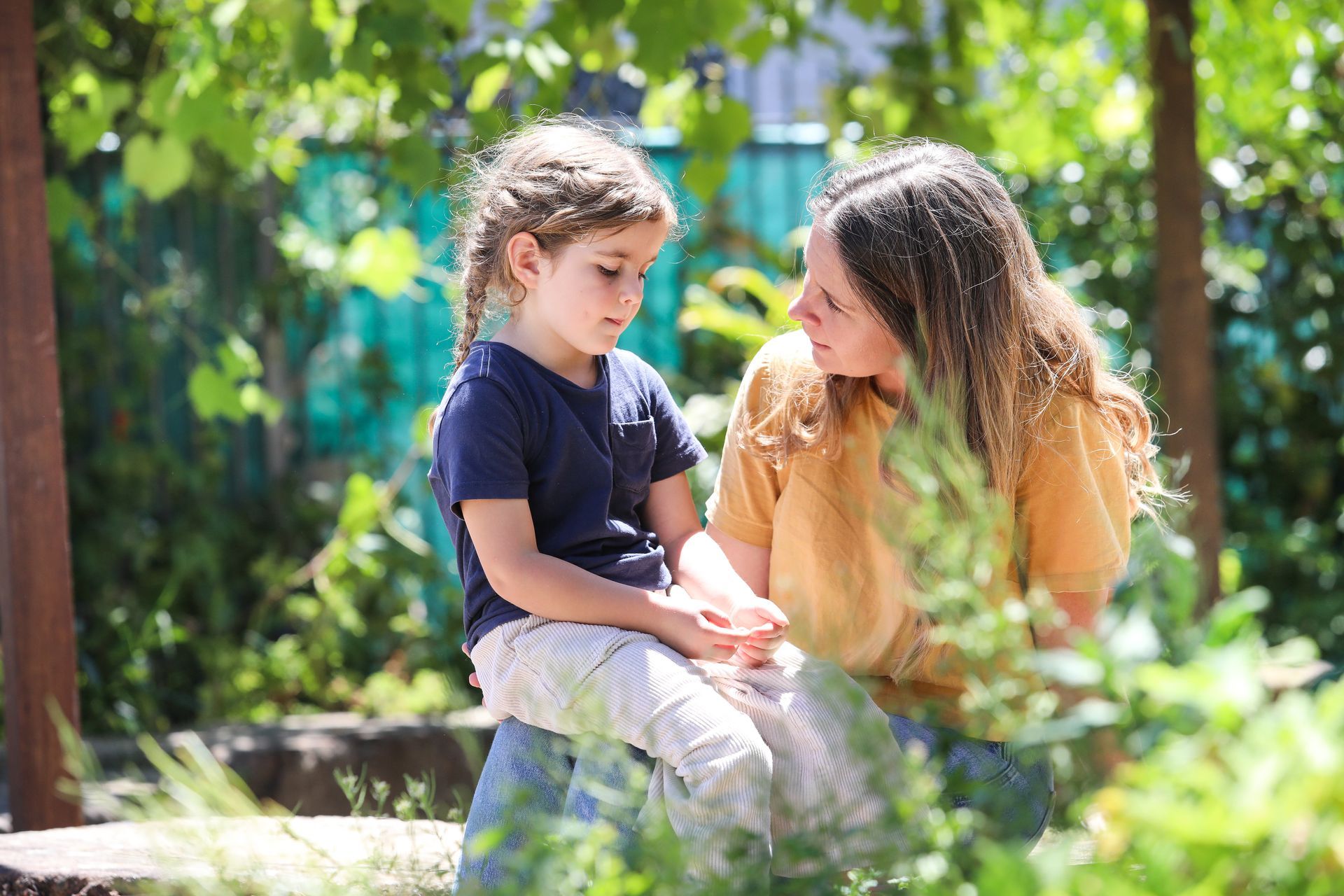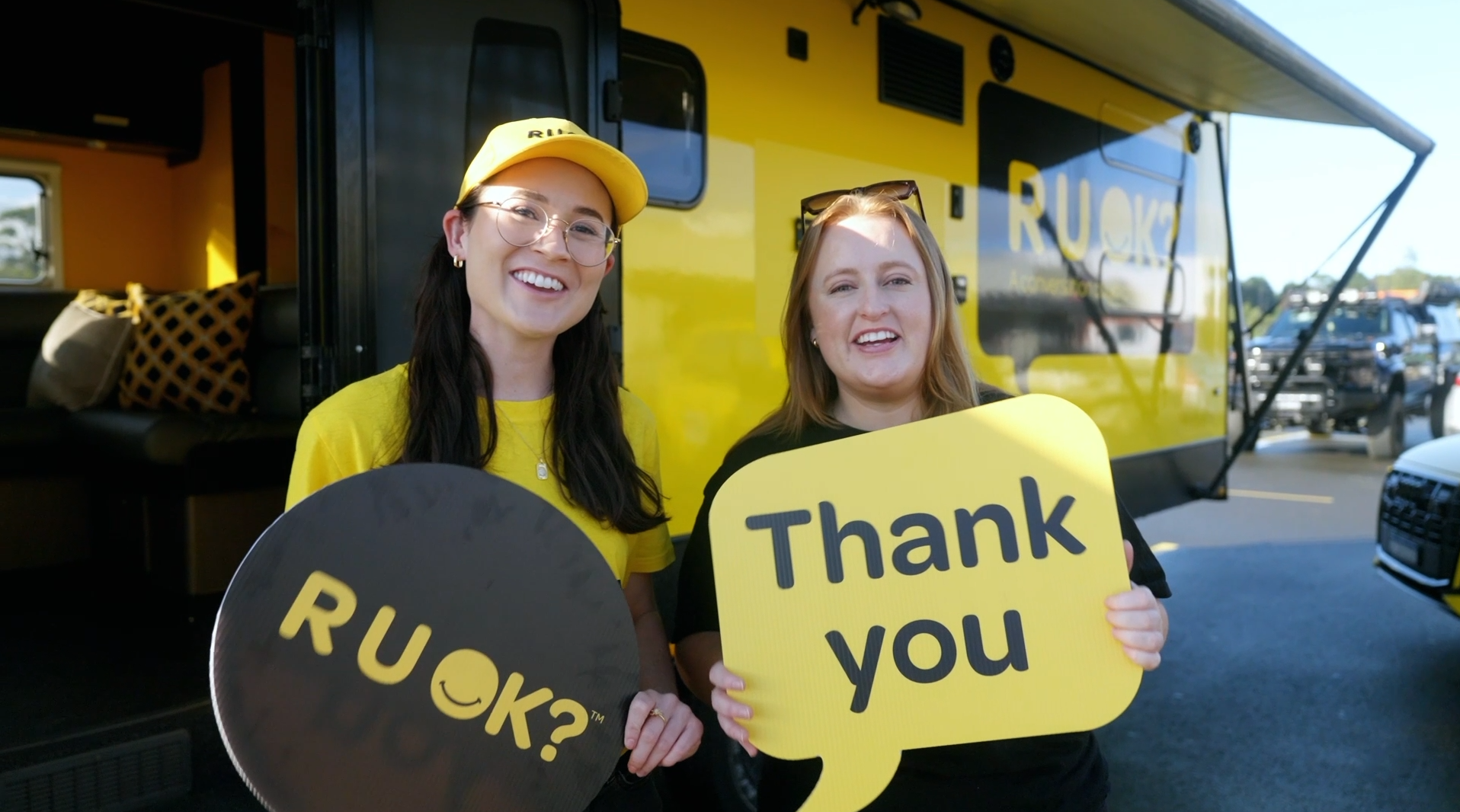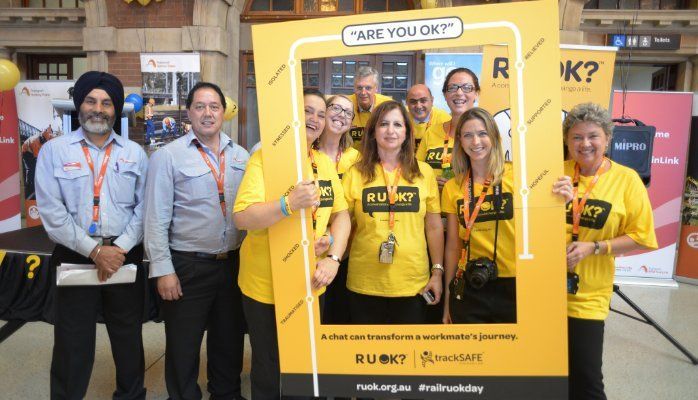Tracksafe: How to help a workmate weather the storm
Have you noticed a workmate is behaving differently? Or doesn’t seem 100 per cent?
Don’t ignore these signs.
Instead, be a workmate’s mate – like Barry Roughley – and help them talk about what’s going on.
“We all know there can be multiple stresses in everyone’s lives, and for the most part we can operate very well and take things in our stride. But there are times unexpected things happen; whether it’s financial, personal or work related. I was under some pressure myself a while ago and speaking to another Peer Support volunteer helped me understand that even a small change could have a huge effect on how I was coping. As a Peer Support volunteer, I’ve had similar chats with colleagues countless times and have experienced the difference a bit of support at work can make first-hand and seen the positive effect on my friends and colleagues who have needed a little support.”
Barry works in the rail industry as a Passenger Service Manager. He’s also a Peer Support volunteer and knows that chatting through stuff with colleagues can help someone through life’s ups and downs.
“I care for all the people I work with. I care that they’re feeling ok and going ok. That’s why I make the time to check in with people at work."
“In the past, I’ve had colleagues who were supporting members of their family through a long illness. I’d check in with them regularly and ask how they’re going. Sometimes, they had a lot to say and at other times not so much. However, I believe knowing there was somebody at work who wasn’t judgemental - who genuinely wanted to know how they were and cared they we’re doing ok - made a difference. I think caring and supportive conversations are important because it shows that you have a real interest in that person and their wellbeing.”
Barry believes it’s important to check in with someone as soon as your gut tells you they might be struggling.
“We work almost daily with our work colleagues, so you get to know the personality of your colleagues, even if they aren’t a close workmate. If you notice a change in a person’s usual personality, it can’t hurt to ask how they’re doing or let them know you’ve noticed they’re not their usual self. As a Peer Supporter and as a manager with 28 staff, I am better able to be there for my team if I see those changes early. Then I can offer some help and support, even if it’s simply a friendly non-judgemental ear.”
Barry says there are lots of questions that can help colleagues open up about things that might be troubling them.
“Conversation starters can be simple. For example you could just say, ‘How are things going? You look a little bit down today.’ Most times - particularly if they know and trust you - they will give you an answer such as, ‘Well yeah, I’ve got a few things going on right now.’ Then you could reply with ‘Do you want to chat about it over a coffee?’ or ‘If you ever want to talk about it I’m here.’ Most of us probably don’t even notice this type of conversation is already part of our daily routine. We need to keep that up because it helps us be attuned to those around us.”
But he doesn’t recommend forcing the conversation.
“If someone’s not ready to talk, that’s ok. I’ll say something along the lines of ‘That’s ok, but I’m here when you want to and when you’re ready.’ If they’ve got walls up there’s no point banging on the wall. It’s a case of assuring them you’re there if they ever need you. It’s also about checking in with them again in a day or so just so they know there’s support if they ever need it.”
Check out how you can help a workmate by starting a conversation at ruok.org.au.
If you're part of the Rail Industry and want to encourage meaningful conversation, check out our Rail R U OK?Day campaign: http://tracksafefoundation.com.au/rail-ruok-day/






















